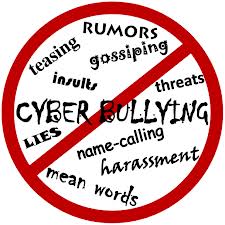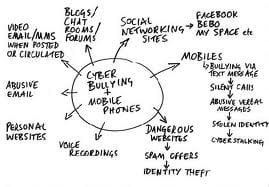
I know they’ve got a vested interest, but Google’s Senior Vice President recently predicted that 50% of all adverts will be online in five years time, guess where their R&D investment will be going. Big players like Google, Facebook and our own mobile phone providers will continue to drive both traffic and our habits.
In most cases people use the internet appropriately to swap gossip, make plans for the weekend, discuss outfits or talk about their favourite sports teams. However there is a dark side, when the technology is abused, or used to harass or threaten others, there can be consequences legally that the perpetrator can face.
In late December 2012 both The Times and The Daily Mail carried stories talking about the massive increase in Internet crime.
- 5,000 reported cases to 29 Police forces on Facebook or Twitter (556 in 2008, 4909 in 2011)
- 650 people charged with offences
- High profile crimes raised awareness in the media, included claims made about Tom Daley’s (the Diver) dead Father and comments about missing children such as Madeleine McCann, which resulted in a 12 week jail sentence.
There are four UK statute laws that are relevant to the use of IT in relation to bullying. These are:
- The Protection from Harassment Act 1997
- The Criminal Justice and Public Order Act 1994
- The Malicious Communications Act 1998
- The Communications Act 2003
How these Acts can be related to bullying, and specifically to cyberbullying, is outlined below. If the bullying is based on sexual, racial or religious grounds, prosecution could be sought through anti-discriminatory laws. See the case of footballer Stan Collymore, who was racially abused on Twitter and the instigator was arrested by the Police
Protection from Harassment Act 1997
This Act was passed following concerns that stalking was not dealt with effectively under the existing legislation. The Act does not refer solely to stalking but also covers harassment in a wider sense. The Act states that it is unlawful to cause harassment, alarm or distress by a course of conduct and states that:-
A person must not pursue a course of conduct, which:
- Equates to harassment of another person
- They know or should to know, amounts to harassment of another person.
There is some anecdotal evidence that the police are more comfortable in bringing forward this law when dealing with issues of Cyberbullying. The police have successfully used the Protection from Harassment Act to prosecute for the sending of offensive e-mails through the internet. Such messages (as well as Text messages) will also constitute an offence under the Malicious Communications Act. Facebook was in 2012 forced by the courts to reveal personal details of people who had harassed a woman.
Criminal Justice and Public Order Act 1994
This Act defines a criminal offence of intentional harassment, which covers all forms, including sexual harassment. A person is guilty of an offence if, with intent to cause a person harassment, alarm or distress, he/she
- uses threatening, abusive or insulting words or behaviour or disorderly behaviour; or
- displays any writing, sign or other visible representation which is threatening, abusive or insulting, thereby causing that or another person harassment, alarm or distress.
Malicious Communications Act 1998/Telecommunications Act 1984
Under this Act it is an offence to send an indecent, offensive or threatening letter, electronic communication or other article to another person. Under section 43 of the Telecommunications Act 1984 it is a similar offence to send a telephone message which is indecent, offensive or threatening.
Both these offences are punishable with up to six months imprisonment and/or a fine.
The Malicious Communications offences are wider ranging, but under the Telecommunications offences, it is likely that the Police will use the former Act to bring a charge.
The Communications Act 2003
The Communications Act 2003 is by far the most recent Act to be passed. Section 127 states that a person is guilty of an offence if he/she
- (1) A person is guilty of an offence if he—
(a) sends by means of a public electronic communications network a message or other matter that is grossly offensive or of an indecent, obscene or menacing character; or
(b) causes any such message or matter to be so sent.
- (2) A person is guilty of an offence if, for the purpose of causing annoyance, inconvenience or needless anxiety to another, he—
(a) sends by means of a public electronic communications network, a message that he knows to be false,
(b) causes such a message to be sent; or
(c) persistently makes use of a public electronic communications network.
- (3) A person guilty of an offence under this section shall be liable, on summary conviction, to imprisonment for a term not exceeding six months or to a fine not exceeding level 5 on the standard scale, or to both

4,500 young people talked to ChildLine about online bullying last year.

